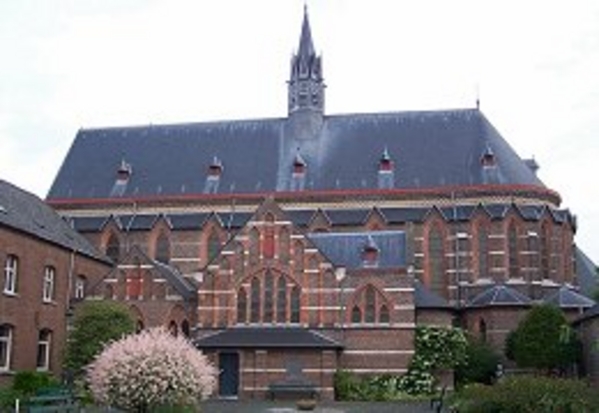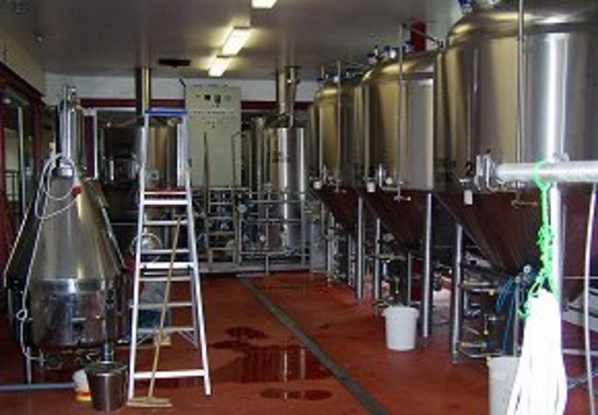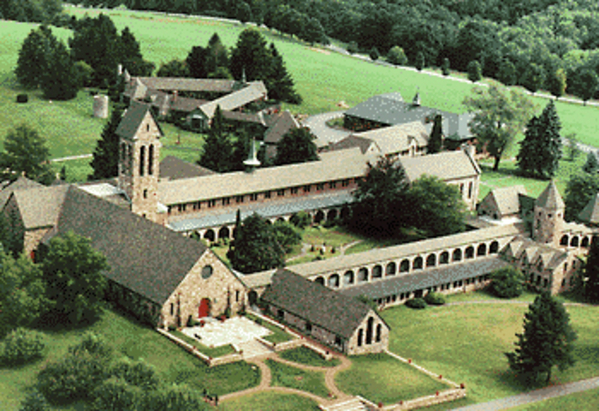Falling number of monks threat to Belgian Trappist brewery -- but in U.S. brothers launch a heavenly beer in Massachusetts
Added: Wednesday, October 23rd 2013

Achel, one of Belgium’s famous Trappist breweries, is under threat of closure -- due to a shortage of monks. Beer making was restored in 1998 following a gap of more than 80 years: it was summarily halted during World War One when German troops occupying Belgium seized the copper vessels and took them back to the Fatherland to turn into armaments.
A new brewhouse opened in 1998 in a former dairy and the monks joined the “famous five” Belgian Trappist breweries of Chimay, Orval, Rochefort, Westmalle and Westvleteren. The design and installation of the brewhouse, with a capacity of 3,000 hectolitres a year, was overseen by Father Thomas, the former head brewer at Westmalle near Antwerp, home of the celebrated Westmalle Tripel strong golden beer. He brought samples of the Westmalle yeast culture with him. When he was taken ill, he was replaced by Father Antoine, the brewer at Rochefort.
But now their efforts may be thwarted by the lack of active monks at Achel. There are just six brothers left in an abbey founded in 1656. One is in his sixties, the others are in their seventies and eighties.
The Saint Benedict Abbey of Achel, which straddles the border between Belgium and the Netherlands, comes under the jurisdiction of the abbot of Westmalle. He could decide to move the monks to his monastery where they could be better cared for in a bigger community. The alternative would be to recruit younger monks to work and live at Achel. But finding people willing to take up the austere life and hard work in both the abbey and its surrounding agricultural land is increasingly difficult in a secular age.
It was the sale of part of the abbey’s land for £30,000 that enabled the monastery to invest in the brewery along with a tavern, guest house, art gallery and shop.

Brewing has been overseen by a layman, Marc Knops, who works at several Belgian breweries, including the Domus brewpub in Leuven. He spends several days a month at Achel but he cannot work there full-time and the abbey is running out of monks to look after the brewing process in his absence.
The brewing equipment (above) was built by Moeschle and is based on the continental system of mash mixer, lauter or filtration vessel, brew kettle where hops are boiled with the sugar-rich extract, and five fermentation tanks. All the beers are matured for a month before being released for draught or bottling. Two draught beers, blond and brown, both 5%, are unfiltered and are drawn straight from the tanks for sale to customers in the tavern. The bottled beers are all refermented with a fresh dosage of yeast. They are Blond and Brune, both 8%, a stronger Blond at 8.5% and Achel 9.5%, a powerful spicy beer.
If the brewery were to close it’s not certain whether – under the strict rules of the International Trappist Association – they could be brewed at Westmalle and retain the Achel name. Another possibility would for an arrangement with a commercial brewer to produce the beers under licence. There used to be such an arrangement between the monks at Westvleteren and the Sint Bernardus Brewery in Watou but this has lapsed. The beers are now made only at the monastery. It’s this reluctance by the monks to have too close a relationship with the commercial world that could scupper a deal between Achel and an outside brewery.
The monks are all too well aware that their brothers at the La Trappe brewery at Koningshoeven near Tilburg in the Netherlands were expelled from the International Trappist Association in the 1990s as a result of their links to the commercial Bavaria brewing group, which makes beer mainly for supermarkets. The La Trappe monks had to return to the path of righteousness before they were allowed back into the ITA and could use the official Trappist logo on their beers again.

While the future of Achel is in doubt, the ranks of Trappist breweries have grown as a result of monks in the United States launching their own beer. The St Joseph monastery at Spencer, Massachusetts (above), brew a 6.5% golden ale and the monks have been guided and assisted by their brothers at the most famous of all the Belgian Trappist breweries, Chimay. A spokesman for the ITA confirmed the beer will be awarded the official Trappist symbol.
UPDATE: Latest news suggests that young monks will be transferred to Achel. If this fails, the church will be closed but the brewery will be maintained. Lay workers can run the brewery and it will continue to label the beers Trappist as long as the equipment is owned by the Trappist authorities and income from the sale of beer is used to maintain the monks' work and the upkeep of their monasteries.






